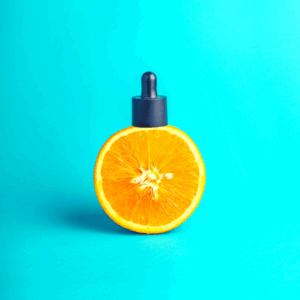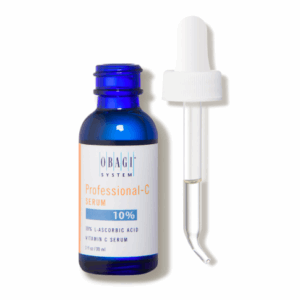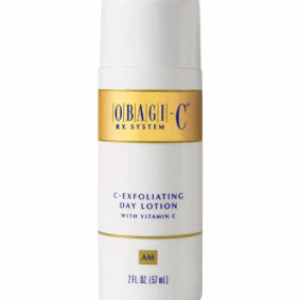
Why Vitamin C might be ruining your skin
Vitamin C is everywhere these days, in moisturisers, serums, sunscreen, face washes – you name it, Vitamin C has claimed it. And it is a great ingredient in skincare. It promotes collagen formation, has fantastic brightening properties and sounds all nice and natural and un-chemically. Tick, tick, tick, right? But is there ever really a one-fits-all in anything (especially when it comes to skincare)? Unfortunately not.
Vitamin C truly is a great anti-ageing and brightening ingredient, and it plays a part in my own skincare routine. However, you do have to proceed with caution, particularly if you tend to suffer from blackheads, breakouts or oily skin…because Vitamin C can promote an increase in oil production! So if you suffer from any of the above you DO NOT need it in every skincare item you own, dear God, you do not.
Unfortunately, oily skin tends to be associated with acne, and consequently acne scarring, and yes, vitamin C can be one (of a number) of ingredients that can help fade these scars and give you the clear, even-toned skin you’ve always dreamed of. But somewhere along the line bloggers, skincare brands and even facialists have lost the run of themselves (Image, I’m looking at you).

A combination and tailored approach to skincare is vital – scarring, age spots and dull skin can benefit from the brightening effects of Vitamin C, but maybe start with one product that isn’t blanketly recommended to the world and it’s mother, and look at introducing other ingredients to work with it, or combat the oil production separately, if that’s an issue for you. Vitamin A (aka retinol or retinoid) can be used to reduce oil production and improve skin texture overall (and also helps with pigmentation), and there are varying formulations and doses available. It is also good to be aware that there are a number of brightening and blending ingredients that won’t cause the same oil outbreak.
My personal regime includes a prescription strength vitamin A (currently this one), an exfoliant cream that contains vitamin C (this one) and a brightening serum with other brightening agents in it. Each person may require something slightly different, and tailor the frequency of application according to how their skin behaves – and lifestyle can play a big part. Exercise can help sweat out impurities, while extensive time in an air conditioned room will dry out even my skin and my skincare routine has to be adjusted accordingly.
A good facialist or skincare specialist that doesn’t just promote one single brand can be worth their weight in gold when it comes to pointing you in the right direction. There are products on the market that can help with pigmentation, even out skin tone and have a brightening effect – whether one or all of them will suit you is another question. The below products and treatments can be of use, but their application usually needs to be tailored to each person, and some just simply won’t suit you:
- Exfoliating liquid or lotion: Medik8 Press&Glow, Bright&Clear from Alumier MD, Obagi Exfoliating Day Lotion.
- Vitamin C: Obagi professional C serum 10% is my go to for skin on the oiler side while drier and more mature skins love their 15-20% levels.
- Hydroquinone: Obagi Clarifying Serum (prescription only, please book a consultation here)
- Retinol: Obagi Retinol 0.5%, Obagi Retinol 1.0%, Obagi Tretinoin, Alpharet from SkinBetter Science (some of these are prescription, please book a consultation with one of team here).
- Chemical peel: There are both light and deep variations of this – light peels can target superficial pigmentation, exfoliate the skin and improve skin texture and congested pores. Deeper peels require preparation of the skin for a minimum of 6 weeks, can be associated with downtime but help improve more resistant pigmentation, skin texture and fine lines and wrinkles. Both may contain a variety of different acids, and some formulations are better than others when it comes to your specific skin complaint (e.g. salicylic acid is excellent in the treatment of acne, mandelic is lovely if you suffer from congestion and pigmentation). An at home treatment that can stand in for peels during lockdown is my favourite mask, and the only scrub allowed anywhere near my face.
- Laser: There are many different lasers these days (and even some things called lasers, that are not lasers) and some are better suited to different skin types or treatment goals than others. ALWAYS make sure you go to an expert if you go down this route, as this is one if the higher risk treatments when it comes to causing pigmentation (melasma peeps, this is seriously one to watch out for – some lasers are great and some will make it worse)! Our favourite for melasma is MOXI, while regular sun damage can be treated exceptionally well with a combination of a BBL & MOXI stack (layering on top of each other to maximise results).

This is a very simple list, but hopefully goes some way to explaining what ingredients you should be looking for in your skincare – and that Vitamin C is not the be all and end all it is currently marketed to be, but it can be an amazing addition to your skincare routine when it is used appropriately!



